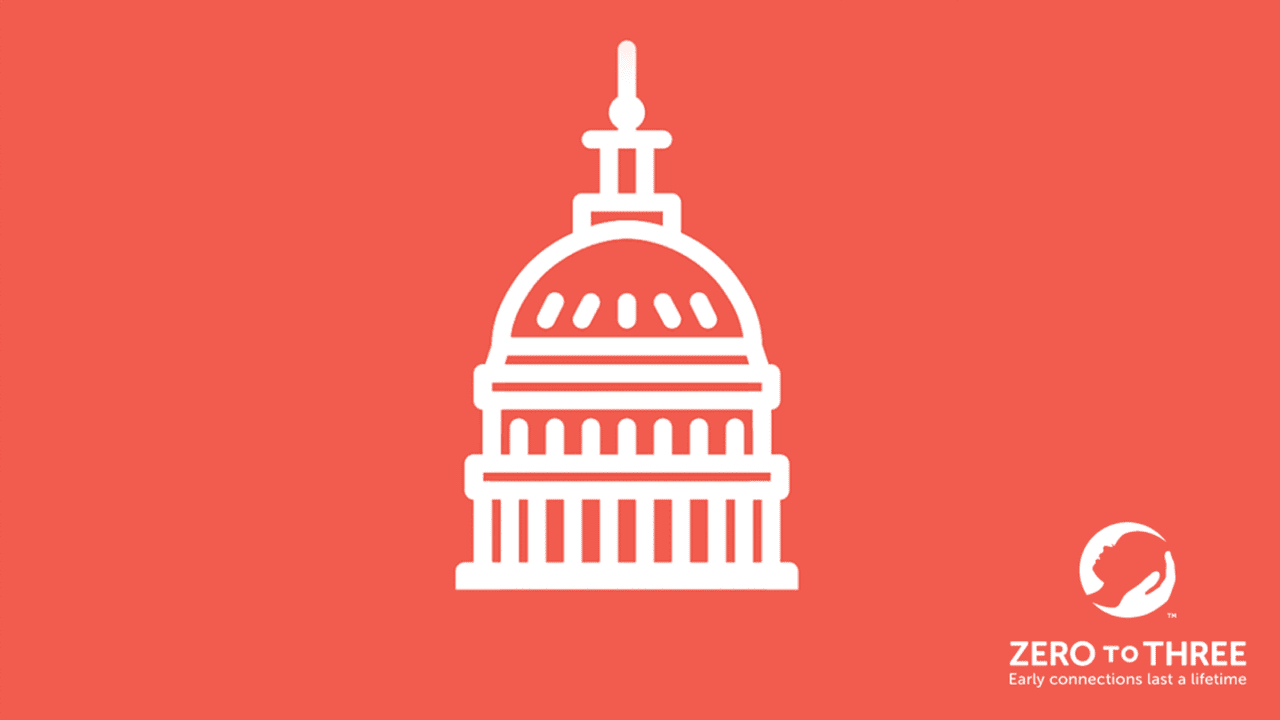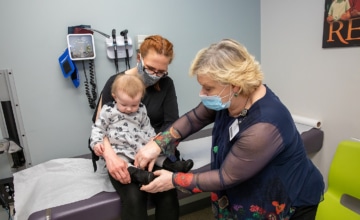Landmark proposal to transform lives of infants and toddlers nationwide
Today, the White House officially unveiled the Build Back Better framework, a landmark investment in the programs and policies needed by Americans nationwide to move forward in the 21st century. ZERO TO THREE, the country’s leading early childhood development nonprofit dedicated to ensuring all babies and toddlers have a strong start in life, hailed the plan as a critical step forward for families with young children and urged Congress to move as swiftly as possible.
ZERO TO THREE Chief Policy Officer Dr. Myra Jones-Taylor stated:
“Today’s announcement begins to make the promise of this administration a reality. At long last, our government is putting families and children first and making them a national priority. This framework will provide parents and caregivers with the support they need to help their children not just survive, but to thrive.
“After years of being underfunded and unsupported, we will finally build the strong foundation that our child care system needs to evolve into a robust program for years to come. Parents who have long struggled to afford care for their children will finally be able to rely on high-quality, affordable options, and child care providers will receive the wages their critical work deserves. The landmark expanded Child Tax Credit – our single greatest tool against child poverty in decades – will continue, changing the life trajectory of millions of young children. And after generations of leaving Black and Brown babies and families with low income behind, these policies will lift up our equity efforts to ensure that all our children have greater access to the early developmental and economic support that they lack today.
“We applaud these transformative investments. However, we are disappointed that paid family and medical leave, which helps parents support foundational development in their babies, has been left out of this framework. We need every piece of the big, bold baby agenda we have advocated for in order to make real change. Providing dedicated time to spend with newborns and family members in need is absolutely critical for caregivers across the country. Paid leave is a critical pillar of this agenda, and leaving it out of the framework would undermine our ability to support families and babies at a critical time in their development. After decades of advocacy, the national conversation around this important issue has at last shifted. Parents across the country are demanding this change and we will continue to fight alongside them to make it a reality.
“A child’s first three years are critical to their future, with brain development occurring more rapidly than at any later point in life. The Build Back Better framework at last recognizes this irrefutable fact, putting policies in place to support our infants and toddlers at this important time. This must not be a singular moment in our nation’s history, but the start of a movement that will carry on for decades on behalf of all our babies and toddlers today and in the future.”
The Build Back Better framework, announced by President Joe Biden and the White House, will provide historic investments in the infrastructure supporting infants, toddlers, and their families. Policies specific to families of young children include:
- $400 billion to support America’s child care and PreK system, ensuring that the majority of working American families of four earning less than $300,000 per year will pay no more than 7 percent of their income on care for children under 6. Furthermore, parents who are working, looking for work, participating in an education or training program, and who are making under 2.5 times their state’s median income will receive support to cover the cost of quality care based on a sliding scale, capped at 7 percent of their income. This will help states expand access to high-quality, affordable care to about 20 million children per year and 9 out of 10 families with young children nationwide.
- The expanded Child Tax Credit will continue to provide monthly payments of $300 per child under the age of six and $250 per month per child ages six to 17. The framework includes permanent refundability for the credit, allowing families most in need to continue to receive these critical payments. This policy has already changed the lives of millions, with one study showing that 3 million children were lifted out of poverty by the credit in one month alone.
- The framework will provide the largest, most comprehensive investment in affordable housing in history, providing for the construction, rehabilitation, and improvement of more than 1 million affordable homes. In addition to impacting urban and rural communities alike, it will provide a major investment in down payment assistance for hundreds of thousands of first-generation homebuyers. Housing instability and crowded housing is a major indicator of whether or not a child has what they need to thrive, and this framework will allow families to provide their children with the safe housing they need.
ZERO TO THREE’s State of Babies Yearbook: 2021 makes clear that bold action is desperately needed on behalf of infants and toddlers across the nation. The report reveals that:
- 40.3 percent of babies nationwide live in families in poverty or with low income, placing the U.S. 33rd for child poverty among 38 other nations. This includes nearly 19 percent of the nation’s 11.5 million babies who were living in outright poverty.
- When a family is living with low income, they’re less likely to obtain preventative care or developmental screening for their babies; more likely to live in crowded housing, unsafe neighborhoods, or move frequently; and their children are more likely to have multiple adverse early experiences.
- Infant care is too expensive for many families, exceeding the cost of college tuition in more than half of states. Only 16 states allow child care subsidies for families with incomes over 200% of the federal poverty level, and just 4 percent of low- and moderate-income families that could use help with paying for child care receive a subsidy.
- Only 11 percent of those income-eligible infants and toddlers have access to Early Head Start, where families can get comprehensive child development and family support services. The proportion served varies from 3 to 23 percent across states.




